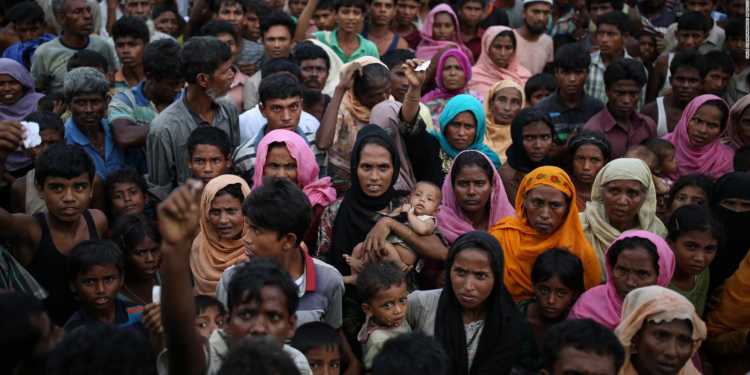A Supreme Court bench headed by Justice Ranjan Gogoi today rejected the plea filed to stop the deportation of seven illegal Rohingya immigrants to Myanmar. On Thursday the Supreme Court three judge bench headed by the newly appointed Chief Justice Ranjan Gogoi rejected the plea filed on behalf of the seven illegal Rohingyas who had been lodged in a jail in Assam since 2012. Post the ruling by the SC, the seven will constitute the first batch of Rohingyas to be deported to Myanmar from India. The Myanmar diplomats had earlier been given consular access by the Indian authorities in Assam, to confirm the identity of the seven immigrants in jail at Silchar in Assam. The deportation will now go as per plan and the seven will be handed over to the Myanmar authorities at the Moreh border post in Manipur today. The SC bench stated that the interference of the apex court was not necessary in this respect as Myanmar had already agreed to accept them as their nationals.
The names of the seven illegal immigrants who are to be deported are, Md Jamal, Mohbul Khan, Jamal Hussain, Md Yonus, Sabir Ahmed, Rahim Uddin and Md Salam who are in the age bracket of 26-32 years according to sources from the Cachar district. The Rohingya identity of the immigrants was confirmed by the Myanmar government after verifying their addresses in the Rakhine state. The plea was originally filed by two Rohingya immigrants, Mohammad Salimullah and Mohammad Shaqir, challenging the central government’s decision to deport over 40,000 Rohingyas who had come illegally into the country. A fresh plea too was filed by lawyer Prashant Bhushan citing the need to conduct immediate hearings in order to stop the planned deportation of the illegal immigrants. Prashant Bhushan and others who filed the plea had said that it was difficult and dangerous for the Rohingyas to settle in Myanmar as they could be subjected to torture and violence in the country. The SC however rejected the plea despite it mentioning terms of “non-derogable principles of customary international law” citing that the deportation was right considering the Myanmar authorities had agreed to take over and protect the deported persons.
This is a welcome step and howsoever so small, it needs to be respected. Much like the central government, the SC too has agreed to send back the illegal immigrants who have been living on Indian soil. The Rohingya immigrants pose security threats and are also going to change the demography of the region in which they are allowed to settle, their radical extremist measures will pose risks for the life and property of citizens too. There have been many reports by Amnesty International and other organisations which speak of Rohingyas carrying out ethnic cleansing of Hindus and Buddhists in Rakhine province of Myanmar. Their mass influx into India will cause severe problems not just for the inhabitants’ livelihood but will also increase the burden on the respective state governments.
Jammu and Kashmir is an example of how the unchecked and unmonitored influx of illegal Rohingyas had created a change in demography of the region and had led to tense situations in Jammu region. The Rohingyas were also welcomed by West Bengal CM Mamata Banerjee to settle in the state so as to increase her voter base and for her long-term goal of minority appeasement. North-eastern states like Assam and Nagaland too are facing a huge problem owing to the influx of Rohingya immigrants in the country. The SC judgement which backs up the plan of the central government is an excellent one which will give a huge boost to the determination to send back all the immigrants which are living in the country at this point of time.


























